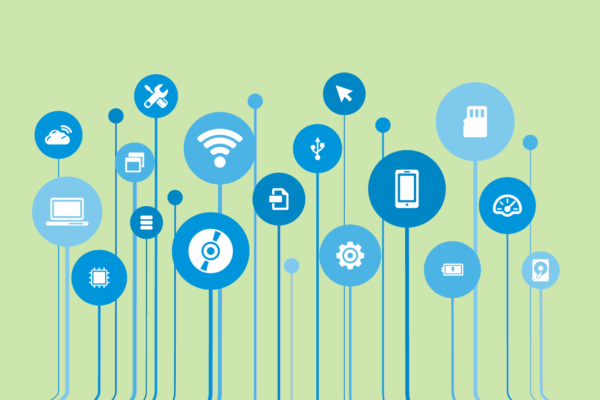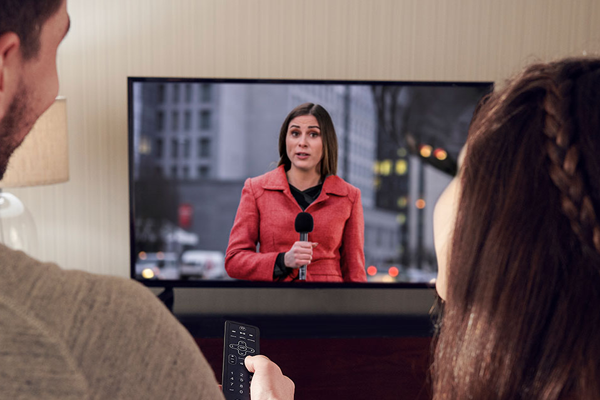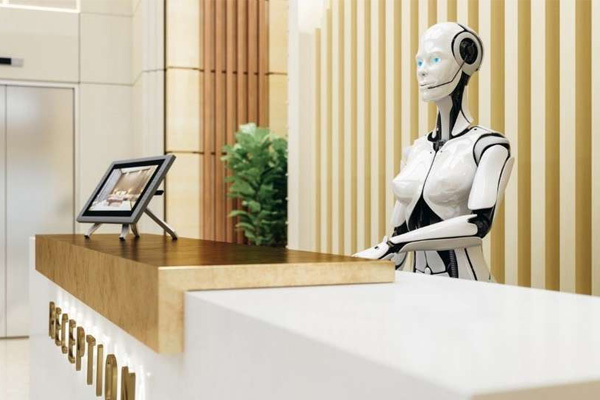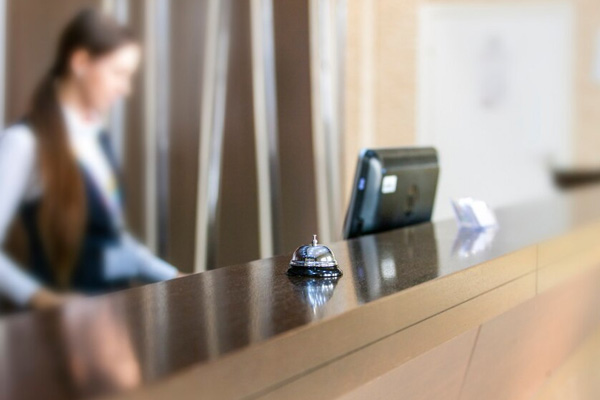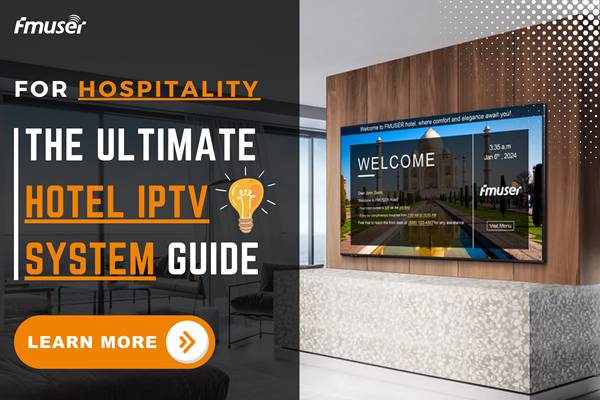
Hot tag
Popular search
How to Boost Your Hotel Business with Contactless Services: A Comprehensive Guide
The hotel industry is currently experiencing a remarkable surge in the adoption of contactless services. These services aim to minimize direct physical contact between guests and hotel staff, providing a safer and more convenient experience.

Contactless services utilize various technologies such as mobile apps, self-check-in kiosks, QR codes, and IoT devices to facilitate seamless transactions and interactions without the need for physical contact.
Overview
Contactless services refer to the use of technology to facilitate transactions and interactions without the need for direct physical contact. This includes mobile apps, self-check-in kiosks, digital platforms, and other technological solutions that enable seamless interactions between guests and hotels. As hotels strive to meet evolving guest expectations and ensure their safety and satisfaction, integrating contactless services has become paramount. This shift towards contactless solutions not only addresses the immediate challenges of the pandemic but also aligns with the broader trends of digital transformation and enhanced guest experiences.
1. How Contactless Services Work
Contactless services utilize various technologies such as near field communication (NFC), mobile apps, QR codes, and IoT devices. These technologies enable guests to perform tasks like check-in, access rooms, make payments, request services, and engage in other hotel-related activities without the need for physical contact.
2. The Growing Need for Contactless Services in Modern Times
The COVID-19 pandemic has played a crucial role in accelerating the adoption of contactless services in the hotel industry. It has become essential for hotels to prioritize the safety of both guests and staff. In addition, modern travelers increasingly value convenience, efficiency, and personalized experiences, all of which contactless services can provide.
As hotels respond to the changing landscape, integrating contactless services becomes paramount to meet guest expectations while ensuring their safety and satisfaction.
By embracing contactless services, hotels can create a more streamlined and efficient guest journey while fostering a sense of safety and convenience. It allows guests to have greater control over their experience, enabling them to check-in, access amenities, and make requests seamlessly. Through the utilization of technology, hotels can adapt to the changing landscape of the industry, ensuring guests feel confident and satisfied with their stay. Contactless services have become an essential aspect of modern hotel operations, offering a safer and more efficient guest experience in the digital era.
Main Advantages
This section highlights the numerous advantages of integrating contactless services in the hotel industry. These advantages contribute to improved operational efficiency, enhanced guest satisfaction and loyalty, as well as cost reduction and resource optimization. The key advantages include:
- Enhanced Convenience and Efficiency: Immerse yourself in a truly seamless and tailored hotel experience with contactless services that revolutionize guest interactions. Navigate effortlessly with intuitive digital check-in and check-out processes, eliminating the need for queues and paperwork. Enjoy the freedom to customize your stay according to your preferences, from room amenities to special requests. With contactless services, experience a streamlined and personalized journey that puts you in control, ensuring a hassle-free and satisfying stay from start to finish.
- Improved Safety and Well-being: Contactless services revolutionize the hospitality industry by placing a strong emphasis on guest safety and well-being. With a focus on reducing physical contact, these innovative solutions offer a range of features that promote a safer environment for hotel guests. Keyless room entry systems eliminate the need for traditional physical keys, allowing guests to securely access their rooms using their smartphones or smart cards. Additionally, cashless payment options enable guests to make transactions without handling physical currency, minimizing the risk of transmission. By implementing these contactless technologies, hotels can provide a seamless, convenient, and above all, safe experience for their guests.
- Personalized and Tailored Experiences: Embrace the convenience of contactless services for a seamless and personalized hotel experience. Experience effortless navigation, customization, and streamlined guest interactions with digital check-in and check-out processes. Enjoy keyless room entry and bid farewell with hassle-free digital check-out, all while prioritizing safety and reducing physical contact. Discover the future of hospitality through contactless services that enhance efficiency and guest satisfaction.
- Increased Guest Loyalty and Positive Feedback: Guest loyalty is greatly fostered through the implementation of contactless services, providing seamless and convenient experiences. By embracing contactless solutions, hotels can ensure that guests have hassle-free interactions, leading to positive experiences that drive recommendations and foster long-term loyalty. The convenience and efficiency of contactless services leave a lasting impression, creating a favorable perception of the hotel and increasing the likelihood of guests returning in the future. By prioritizing guest satisfaction and streamlining processes, contactless services become a powerful tool in building strong relationships with guests and cultivating their loyalty
- Cost Reduction and Resource Optimization: Implementing contactless services can lead to significant cost savings for hotels. By automating manual processes, such as paper-based forms and physical key distribution, hotels can reduce operational costs related to printing, staff overhead, and maintenance. Additionally, contactless platforms provide insights into guest behavior and preferences, allowing hotels to align services and resources accordingly, optimizing efficiency and minimizing waste.
Applications
A. Contactless Check-In and Check-Out:
Contactless check-in and check-out processes revolutionize the guest experience by eliminating the need for traditional front desk interactions. Through mobile apps or web portals, guests can complete pre-arrival registration, digitally sign necessary documents, and provide identification information. This streamlines the check-in and check-out process, allowing guests to bypass queues and enjoy a seamless arrival and departure experience.
Here's how these platforms enable a seamless and efficient arrival and departure experience:
- Pre-arrival registration: With contactless services, guests can complete the registration process before their arrival. They can use a mobile app or access a web portal provided by the hotel to enter their personal details, preferences, and any special requests. This ensures that all necessary information is ready and available to expedite the check-in process.
- Digital document signing: Instead of filling out physical paperwork upon arrival, guests can digitally sign necessary documents through the mobile app or web portal. This includes agreements, consent forms, and registration cards. By eliminating the need for physical paperwork, the check-in process becomes faster and more eco-friendly.
- Uploading identification information: Contactless services allow guests to securely upload their identification documents, such as passports or driver's licenses, in advance. This ensures a smooth and efficient verification process, avoiding the need for manual document checks at the front desk.
- Mobile key issuance: Upon completion of the check-in process, guests receive a digital key on their mobile app, allowing them to access their room without the need for a physical key. This key is securely stored on their device and can be easily activated when in close proximity to the room door.
- Express check-out: With contactless check-out, guests can settle their bill and complete the departure process through the mobile app or web portal. They can review their charges, make any necessary adjustments or payments, and receive an electronic copy of their receipt. This eliminates the need to visit the front desk for check-out, saving time and reducing contact.
By leveraging mobile apps or web portals, contactless services streamline the entire check-in and check-out process, reducing wait times, minimizing physical interactions, and enhancing the overall guest experience. Hotels that embrace these technologies provide guests with greater convenience, efficiency, and control over their stay, ultimately contributing to higher guest satisfaction and loyalty.
B. Digital Room Keys and Mobile Access:
Traditional physical key cards are being replaced with digital room keys accessible through guests’ mobile devices. With mobile access, guests can conveniently unlock their rooms using mobile apps connected to secure Bluetooth or near field communication (NFC) technology. This eliminates the risk of lost or demagnetized key cards and provides a more secure and contactless method of room entry.
Digital room keys and mobile access technology revolutionize the way guests access their rooms, offering convenience and enhanced security. Here's how it works:
- Mobile app integration: Hotels provide a mobile app that guests can download and install on their smartphones. This app serves as a secure platform for managing digital room keys and accessing various hotel services.
- Secure Bluetooth or NFC technology: The mobile app utilizes secure Bluetooth or near field communication (NFC) technology to establish a connection between the guest's mobile device and the door lock system. This ensures a secure and reliable method of communication.
- Mobile device as a digital key: Once the connection is established, guests can use their mobile devices as digital room keys. They simply need to approach the door lock, and with a simple tap or a proximity-based detection, the door unlocks.
- Convenience and flexibility: With digital room keys, guests no longer need to worry about carrying physical key cards or the risk of losing or demagnetizing them. Their mobile device becomes the key, offering convenience and eliminating the need for physical interaction with key cards or traditional locks.
- Enhanced security and contactless entry: Digital room keys provide a more secure method of room entry. The encrypted technology used in mobile access ensures that only authorized guests can unlock their rooms. Additionally, it eliminates the need for physical contact with shared surfaces, offering a more hygienic and contactless experience.
By adopting digital room keys and mobile access technology, hotels enhance guest convenience, streamline the check-in process, and provide a more secure and contactless method of room entry. Guests can enjoy the freedom of accessing their rooms with a simple tap on their mobile devices, eliminating the hassle and concern associated with traditional key cards.
C. In-Room Automation and Voice Control:
Hotels are incorporating smart technologies to enable in-room automation and voice control. Guests can use voice-activated assistants, such as Amazon Alexa or Google Home, to control room temperature, adjust lighting, request hotel services, and access information. This touchless interaction enhances convenience, personalization, and comfort, creating a more enjoyable and high-tech guest experience.
In-room automation and voice control systems provide guests with a seamless and personalized experience, allowing them to control various aspects of their room using voice commands or a smartphone app. Here’s how in-room automation and voice control work in hotels:
- Smart Devices Integration: Hotels equip guest rooms with smart devices such as smart thermostats, lighting systems, TVs, and entertainment systems. These devices are connected to a central control system.
- Voice-activated Assistants: Guests can use voice-activated assistants integrated into the room, like Amazon Alexa or Google Assistant, to control these devices. By using voice commands, guests can adjust room temperature, change lighting settings, control the TV, or request personalized services.
- Customized Room Settings: In-room automation systems allow guests to personalize their room settings according to their preferences. They can set the desired temperature, adjust lighting colors and intensity, and save their preferences for future stays.
- Seamless Integration with Mobile Apps: Hotels offer mobile apps that sync with the in-room automation system. Guests can use the app to control room features remotely, even before entering the room. For example, they can adjust the thermostat while still in the lobby or order room service using voice commands through the app.
- Efficiency, comfort, safety: In-room automation systems offer numerous benefits for the hospitality industry, including energy efficiency, enhanced guest comfort, and improved hygiene and safety. By automatically adjusting settings and conserving energy, these systems contribute to sustainability. Guests can easily personalize their surroundings and access entertainment options, while also enjoying a touchless and hygienic experience. These advantages make in-room automation systems a valuable addition to any hospitality establishment.
By implementing in-room automation and voice control, hotels enhance guest comfort, personalize the experience, and provide a seamless and innovative way for guests to interact with their room environment. Whether it’s adjusting room settings or requesting services through voice commands, guests enjoy an effortless and enjoyable stay.
D. Virtual Concierge and Guest Communication:
Virtual concierge services have revolutionized guest communication in the hotel industry. By leveraging technology, hotels can offer 24/7 assistance and personalized recommendations to guests without the need for face-to-face interactions. Let’s explore how virtual concierge services enhance guest engagement, satisfaction, and convenience:
- Mobile App or In-room Tablets: Hotels provide guests with access to a mobile app or in-room tablets that serve as their virtual concierge. These platforms allow guests to access a wide range of hotel services, amenities, and information at their convenience.
- Personalized Recommendations: Through virtual concierge services, guests can receive personalized recommendations based on their preferences and interests. Whether they are looking for local attractions, restaurants, or entertainment options, the virtual concierge provides tailored suggestions to enhance their experience.
- 24/7 Assistance: Unlike traditional concierge services with limited availability, virtual concierge services are accessible 24/7. Guests can make service requests, book spa appointments, request housekeeping, or seek assistance at any time, ensuring their needs are promptly addressed.
- Language Support: Virtual concierge services can offer multilingual support, allowing guests to communicate in their preferred language. This ensures effective communication and a seamless experience for international travelers who may have language barriers.
- Real-time Communication: Virtual concierge services facilitate real-time communication between guests and hotel staff. Guests can chat or send messages through the mobile app or in-room tablets, receiving instant responses and updates.
- Contactless Service Requests: With virtual concierge services, guests can make service requests without the need for physical interaction. They can order room service, request additional amenities, or seek assistance without having to visit the front desk or make phone calls.
- Instant Notifications and Updates: Virtual concierge services can send push notifications or alerts to keep guests informed about special offers, events, or any changes in their reservation. This ensures guests stay up-to-date and allows them to make informed decisions during their stay.
- Feedback and Ratings: Virtual concierge services often include a feedback feature, allowing guests to provide their ratings and reviews. This enables hotels to gather valuable insights, identify areas for improvement, and enhance guest satisfaction.
By offering virtual concierge services, hotels improve guest engagement, satisfaction, and convenience. Guests can access information, make requests, and receive personalized recommendations at any time, creating a seamless and enhanced hotel experience. Virtual concierge services provide a contactless and efficient communication channel that aligns with the needs and expectations of modern-day travelers.
E. Contactless Payments and In-Room Dining:
Contactless payment solutions and digital ordering systems have transformed the way guests settle their bills and order in-room dining in hotels. By leveraging technology, hotels provide a safer and more convenient experience for guests. Let’s explore the benefits of contactless payments and in-room dining:
1. Contactless Payments:
- Mobile Wallets and NFC Technology: Hotels offer mobile payment options and near field communication (NFC) technology, allowing guests to settle their bills using their smartphones or contactless payment cards. This eliminates the need for physical exchange of cash or credit cards, providing a hygienic and secure payment method.
- Quick and Convenient: Contactless payment solutions enable guests to settle bills quickly and seamlessly. With a simple tap or scan, guests can complete their transactions, saving time and avoiding the hassle of handling physical currency or waiting in lines.
- Enhanced Security: Contactless payments use advanced encryption and tokenization technologies, ensuring secure transactions. This provides peace of mind to guests, reducing the risks associated with traditional payment methods.
- Mobile App Integration: Hotels may integrate their mobile apps with contactless payment solutions, allowing guests to view and manage their bills digitally. Guests can monitor their expenses, review previous transactions, and receive electronic receipts for their records.
2. In-Room Dining:
- Digital Menus: Hotels are replacing traditional printed menus with digital menus accessible through mobile apps or in-room tablets. Guests can browse through a variety of menu options, visualize dish presentations, and read detailed descriptions, all without physical contact.
- Contactless Ordering: Through the digital menus, guests can place their orders for in-room dining with just a few taps on their smartphones or tablets. They can customize their meals, make dietary requests, and specify delivery preferences, enhancing the overall dining experience.
- Reduced Wait Times: Digital ordering systems streamline the ordering process, allowing guests to send their orders directly to the kitchen. This minimizes the chances of miscommunication and reduces wait times, ensuring prompt and efficient service.
- Personalized Recommendations: In-room dining platforms can integrate personalized recommendation algorithms. Based on guests’ preferences and previous orders, they can receive tailored suggestions for dishes or beverage pairings, enhancing their dining experience.
- Hygiene and Safety Measures: Digital menus and contactless ordering systems reduce the need for physical interactions between guests and hotel staff. This promotes hygiene and safety by eliminating the handling of printed menus and reducing face-to-face contact during the ordering process.
By implementing contactless payment solutions and digital ordering systems for in-room dining, hotels offer a safer, more convenient, and personalized dining experience for guests. Contactless payments provide a secure and efficient payment method, while digital menus and contactless ordering systems enhance the overall dining process, ensuring guest satisfaction and hygiene standards.
These applications of contactless services in hotels demonstrate the industry’s shift towards providing seamless, convenient, and safe experiences for guests. By incorporating technologies that reduce physical touchpoints, hotels enhance guest comfort, reduce waiting times, and empower guests with greater control and customization options throughout their stay.
Tailored Hospitality
In order to provide exceptional guest experiences, hotels need to cater to the diverse needs of different types of guests. Contactless services offer a versatile solution that can be tailored to meet the specific requirements of various guest segments. Let's explore how contactless services can cater to different types of hotel guests:
A. Business Travelers:
Business travelers often have tight schedules and require efficient processes. Contactless services, such as mobile check-in and keyless room entry, enable them to seamlessly manage their stay, saving time and increasing productivity. Additionally, contactless platforms can provide business-related services like virtual meeting room reservations and document printing, ensuring a smooth and efficient business experience.
Contactless services can cater to their needs by offering:
- Seamless Check-In and Check-Out: Business travelers can benefit from contactless check-in and check-out processes, eliminating the need for lengthy queues or paperwork. They can simply use a mobile app or self-service kiosks to complete these tasks swiftly.
- Virtual Concierge Assistance: Contactless services can provide on-demand virtual concierge support, enabling business travelers to access information and services remotely. They can receive recommendations, book transportation, request amenities, and more, all through digital platforms.
- Efficient Communication Channels: Contactless services facilitate real-time communication between business travelers and hotel staff. This ensures prompt responses to inquiries, requests, and any changes in itineraries, leading to enhanced convenience and satisfaction.
B. Families and Leisure Travelers:
Families and leisure travelers often seek personalized experiences and convenient arrangements. Contactless services allow them to easily access and book family-friendly amenities, explore local attractions, and enjoy tailored recommendations based on their interests and preferences. Digital platforms can also provide information on nearby activities and offer services like childcare arrangements, making the stay more enjoyable and memorable.
Contactless services can cater to their needs by offering:
- Contactless Room Access: Families and leisure travelers can use digital room keys or mobile access to enter their rooms without the hassle of physical keys or cards. This ensures a smooth and hassle-free check-in process.
- Personalized Experiences: Contactless services can enable hotels to gather information about guests' preferences and customize their experiences accordingly. From pre-selecting in-room amenities to personalized recommendations for local attractions, these services enhance the overall enjoyment of families and leisure travelers.
- Simplified Service Requests: Contactless services allow families and leisure travelers to request services, such as extra towels, cribs, or room service, using digital platforms or voice-activated assistants. This eliminates the need for phone calls or in-person interactions, making the process more convenient and efficient.
C. Elderly and Vulnerable Guests:
Elderly and vulnerable guests may require extra support and precautions during their stay. Contactless services provide a touchless experience, minimizing physical interactions and reducing the risk of accidents or exposure to germs. Features such as accessible room controls, voice-activated assistants, and personalized assistance through digital platforms enhance their comfort and overall experience. Furthermore, contactless options for room service, housekeeping requests, and medical assistance can be tailored to their specific needs, ensuring a safe and convenient stay.
Some ways to cater to their needs include:
- Assistive Technology: Contactless services can include assistive technologies, such as voice-controlled devices or smart sensors, to facilitate ease of use for elderly and vulnerable guests. These technologies can help control lighting, temperature, and entertainment options in the room, catering to individual needs.
- Remote Assistance: Contactless services can offer remote assistance for elderly and vulnerable guests who may require support or have specific requests. By providing virtual support and on-demand assistance, hotels can ensure their safety and comfort without compromising their independence.
- Enhanced Safety Measures: Contactless services can contribute to enhanced safety measures, such as contactless payments, in-room controls, and sanitized amenities. These measures provide peace of mind for elderly and vulnerable guests, reassuring them of a comfortable and safe stay.
By catering contactless services to the unique needs of different types of guests, hotels can deliver personalized experiences, exceed expectations, and create a memorable stay for every individual.
Seamless Integration
The integration of contactless services with hotel systems plays a crucial role in maximizing the benefits and efficiency of these services. This section explores the integration aspects and highlights the advantages it brings for streamlining operations, benefiting hotel staff, and enhancing security and data protection.
1. Streamlining Operations and Data Management:
Integrating contactless services with hotel systems allows for seamless flow of information and streamlined operations. By connecting contactless check-in and check-out processes, digital room keys, virtual concierge services, and contactless payments to the central hotel management system, data can be efficiently managed and utilized. This integration enables real-time updates, accurate inventory management, and enhanced guest profile management, leading to improved operational efficiency and enhanced guest experiences.
2. Benefits for Hotel Staff:
The integration of contactless services with hotel systems not only benefits guests but also empowers hotel staff. Instant access to guest preferences, requests, and services through a centralized platform enables staff to personalize interactions and provide tailored services. This integration also automates manual processes, reducing administrative burdens and enabling staff to focus on delivering exceptional service. With real-time data insights, hotel staff can make informed decisions, optimize resource allocation, and quickly respond to guest needs.
3. Enhanced Security and Data Protection:
Integration of contactless services with hotel systems prioritizes security and data protection. Robust data encryption and secure protocols ensure that guest information remains safe throughout the digital journey. Centralized management systems with access controls further enhance security by reducing the risk of unauthorized access. Additionally, the integration allows for efficient data management, enabling hotels to comply with data protection regulations and safely store guest information, further establishing trust and credibility with guests.
The integration of hotel systems with contactless services brings numerous benefits to both guests and hotel staff. From streamlining operations and optimizing data management to empowering staff with enhanced guest knowledge and personalized service capabilities, the integration ensures a seamless and efficient hospitality experience. Furthermore, the integration prioritizes security and data protection, creating a safe and trustworthy environment for both guests and hotel operators. By embracing the full potential of contactless services and integrating them seamlessly with existing hotel systems, hotels can provide exceptional guest experiences while enhancing operational efficiency and data security.
IPTV Hospitality
IPTV, or Internet Protocol Television, is a digital television broadcasting system that delivers television content through internet protocol networks. Unlike traditional broadcasting methods, IPTV enables hotels to provide a wide range of interactive services, including video-on-demand, music streaming, interactive menus, and personalized content. It offers a seamless and immersive in-room entertainment experience for guests.
The integration of contactless services with an IPTV system can further enhance the user experience for hotel guests. By combining these two technologies, hotels can offer a comprehensive and interactive platform that seamlessly integrates in-room entertainment, personalized guest services, and contactless functionalities.
A. Applications
Through the IPTV system, guests can easily access contactless services such as mobile check-in and check-out, digital room keys, virtual concierge, and contactless payments. These services can be accessed directly through the IPTV interface or through a mobile app connected to the IPTV system.
For example, guests can use their IPTV remote control or mobile device to check-in and receive a digital room key. They can then use the same platform to order in-room dining, request housekeeping services, or explore the hotel’s amenities and services. By integrating contactless services with the IPTV system, hotels provide a convenient and centralized hub for guests to access all their needs and preferences.
Furthermore, the IPTV system can integrate with other smart hotel technologies, such as in-room automation and voice control, allowing guests to control room features through the IPTV interface. For instance, guests can adjust room temperature, lighting, and even request personalized recommendations through voice commands or interactive menus.
This integration of contactless services with the IPTV system creates a seamless and personalized guest experience. It simplifies guest interactions, reduces physical touchpoints, and provides a centralized platform for accessing a wide range of hotel services. Additionally, it enables hotels to gather valuable data insights on guest preferences and behavior, allowing them to further personalize the guest experience and optimize their offerings.
The combination of contactless services and an IPTV system not only enhances guest satisfaction but also improves operational efficiency for the hotel. Staff can respond to guest requests more efficiently, while also having access to guest data and preferences to provide tailored services.
In summary, integrating contactless services with an IPTV system offers a powerful solution for hotels to enhance the user experience, streamline operations, and provide personalized guest services. This combination of technologies will continue to transform the hospitality industry by delivering seamless and immersive digital experiences to guests.
B. Advantages
1. Seamless In-Room Entertainment Experience:
- Access to a Wide Range of Content and Streaming Services: The integration of contactless services with an IPTV system provides guests with access to a plethora of entertainment options, including movies, TV shows, and streaming services. This enhances the in-room entertainment experience and allows guests to enjoy their preferred content at their convenience.
- Personalized Recommendations and Content Curation: The IPTV system can analyze guest preferences and viewing habits to provide personalized content recommendations. This not only enhances the guest experience but also enables hotels to showcase their offerings and promotions to target specific guest segments.
- Easy Navigation and User-Friendly Interface: With a user-friendly interface, guests can easily navigate through various entertainment options, switch between live TV and on-demand content, and customize their preferences. The intuitive design of the IPTV system ensures a seamless and enjoyable user experience.
2. Enhanced Guest Control and Convenience:
- Contactless Room Controls (Lighting, Temperature, Curtains): Integration of the IPTV system with contactless services allows guests to control room features such as lighting, temperature, and curtains through the IPTV interface or mobile app. This eliminates the need for physical touchpoints, providing a convenient and hygienic experience.
- Virtual Remotes and Device Pairing: Guests can use their mobile devices as virtual remote controls, enhancing convenience and reducing the need for multiple devices. The IPTV system allows for easy pairing of personal devices with the in-room TV, giving guests control and access to their preferred content.
- Voice-Activated Commands for TV and Services: With voice-activated commands, guests can control the TV, browse channels, and access hotel services hands-free. This feature adds convenience and a touch of luxury to the guest experience.
3. Streamlined Service Requests and Information Access:
- Ordering Room Service and Amenities: Contactless services integrated with the IPTV system enable guests to place orders for room service, request amenities, and make special requests effortlessly.
- Digital Menus and In-Room Dining Selection: Through the IPTV system, guests can view digital menus, browse through dining options, and easily place orders for in-room dining. This eliminates the need for physical menus and streamlines the ordering process.
- Local Area Information and Hotel Facilities Guide: The IPTV system can serve as a digital guide, providing guests with information about nearby attractions, restaurants, transportation, and hotel facilities. This helps guests navigate and explore the local area seamlessly.
4. Efficient Communication with Hotel Staff:
- Messaging and Concierge Services via IPTV System: Contactless services integrated with the IPTV system enable guests to communicate with hotel staff through instant messaging or virtual concierge services. This facilitates efficient and prompt assistance, as guests can make requests or seek information without leaving their rooms.
- Requesting Housekeeping or Maintenance Services: Guests can use the IPTV system to request housekeeping or maintenance services, ensuring that their needs are attended to in a timely manner.
- Feedback and Resolution for Guest Concerns: The IPTV system can provide a platform for guests to provide feedback and report any concerns they may have during their stay. This allows the hotel to address issues promptly and ensure guest satisfaction.
By leveraging contactless services and integrating them with the IPTV system, hotels can reap numerous benefits, including enhanced guest experiences, streamlined operations, and improved staff efficiency. The combination of seamless in-room entertainment, enhanced guest control, streamlined service requests, and efficient communication contributes to an elevated stay for guests while showcasing the hotel's commitment to innovation and guest satisfaction.
C. Other Benefits and Advantages for the Hotel
1. Cost Savings and Operational Efficiency:
- Reduction in Physical Remotes and Printed Collaterals: Integrating contactless services with the IPTV system eliminates the need for physical remotes and printed collaterals such as menus and information booklets. This leads to cost savings and reduces environmental impact.
- Automated Processes and System Integration: Contactless services integrated with the IPTV system automate various guest service processes, such as check-in and check-out, room controls, and service requests. This improves operational efficiency, reduces staffing needs, and allows staff to focus on delivering personalized guest experiences.
- Real-Time Analytics and Insights for Hotel Management: The IPTV system integrated with contactless services provides real-time data and analytics on guest preferences, behavior, and operational performance. Hotel management can leverage this information to make data-driven decisions, optimize operations, and deliver personalized services.
2. Improved Guest Satisfaction and Loyalty:
- Personalization and Tailored Experiences: The integration of contactless services with the IPTV system enables hotels to personalize guest experiences based on preferences and past interactions. This fosters a sense of customization and enhances guest satisfaction.
- Time-Saving and Convenient Services: Contactless services coupled with the IPTV system minimize manual processes, reduce wait times, and enhance convenience for guests. This leads to a more efficient and enjoyable stay, increasing guest satisfaction and loyalty.
- Positive Guest Reviews and Recommendations: When guests experience seamless contactless services through the IPTV system, they are more likely to provide positive reviews and recommendations. This boosts the hotel's reputation, attracts new guests, and helps maintain a loyal customer base.
3. Differentiation and Competitive Edge:
- Offering Innovative and Modern Amenities: By integrating contactless services with the IPTV system, hotels can offer innovative and modern amenities that set them apart from competitors. This positions the hotel as forward-thinking and appealing to tech-savvy guests seeking cutting-edge experiences.
- Meeting Guest Expectations for Technology Integration: In an increasingly digital world, guests have come to expect seamless technology integration in their hotel experiences. By incorporating contactless services with the IPTV system, hotels can meet and exceed these expectations, enhancing guest satisfaction and loyalty.
- Attracting Tech-Savvy and Millennial Travelers: Millennials and tech-savvy travelers place a high value on technology-driven experiences. By embracing contactless services and the IPTV system, hotels can attract and cater to this demographic, gaining a competitive edge in the market.
In conclusion, the integration of contactless services with the IPTV system provides hotels with a multitude of benefits and advantages. From cost savings and operational efficiency to improved guest satisfaction and loyalty, these technologies enable hotels to differentiate themselves, meet guest expectations, and gain a competitive edge in the ever-evolving hospitality industry. By embracing these innovative solutions, hotels can create memorable and seamless experiences that leave a lasting impression on their guests.
FMUSER's IPTV Solution
Welcome to FMUSER's IPTV Solution! We offer a comprehensive range of IPTV services designed to provide contactless and seamless experiences in hotels. Our solution can be integrated perfectly with your existing hotel system, ensuring a smooth transition to advanced technology while enhancing guest satisfaction.
We offer a wide range of services to assist you throughout the entire process, from start to finish. Our services include:
- Tailored IPTV System for Contactless Services: Our IPTV system is the perfect solution for hotels looking to offer contactless services. With our cutting-edge technology, guests can access a wide range of services using their own devices, such as smartphones, tablets, or smart TVs. From in-room entertainment to ordering room service, our system ensures a convenient and personalized experience.
- Hardware Support: We provide a robust and scalable headend system, capable of delivering high-quality content to all devices across your hotel. Our team will also help you select and install the necessary networking equipment to ensure a reliable and efficient IPTV system.
- Detailed Consultation: Our team of experts will conduct a thorough consultation to understand your hotel's specific needs and objectives. We will work closely with you to identify the features and functionalities that align with your vision.
- Customizable Interface: We offer a highly customizable user interface that can be branded with your hotel's logo, colors, and themes. This ensures a consistent and seamless brand experience for your guests.
- Content Personalization: We provide the flexibility to curate and personalize content based on your target audience and guest preferences. Whether it's local channels, on-demand movies, or streaming services, we can tailor the content offerings to enhance guest satisfaction.
- Integration with Existing Systems: Our IPTV solution can seamlessly integrate with your existing hotel systems, including property management systems (PMS), room automation systems, and other third-party applications. This integration enables a unified and streamlined guest experience.
- Scalability and Future-Proofing: We design our IPTV solution to be scalable, allowing your hotel to grow and adapt to changing demands. Our flexible architecture ensures that your system can accommodate future expansions and advancements in technology.
- Ongoing Support and Maintenance: Our commitment to your success extends beyond the initial implementation. We provide ongoing support and maintenance services to ensure that your IPTV system operates smoothly and efficiently. Our team is always available to address any issues or provide technical assistance.
At FMUSER, we strive to build long-term partnerships with our clients. We are dedicated to providing exceptional service and support, ensuring your satisfaction throughout our collaboration. With our reliable and innovative IPTV solution, we aim to help your hotel business grow and succeed in today's competitive market.
Contact us today to learn more about our IPTV solution and how we can assist you in transforming your hotel into a contactless and guest-centric environment. We look forward to becoming your trustworthy partner for all your IPTV needs.
AI in Hotels
AI, or Artificial Intelligence, is a branch of computer science that enables machines to perform tasks that typically require human intelligence. In the hotel industry, AI has the potential to transform guest experiences by providing personalized, efficient, and intuitive services. AI technologies, such as natural language processing, machine learning, and computer vision, have the ability to analyze data, understand guest preferences, and make intelligent decisions.
A. Integration of AI with Contactless Services:
The integration of AI with contactless services offers a new dimension to enhance the user experience in hotels. By harnessing the power of AI, hotels can offer intelligent and personalized services, streamline operations, and provide guests with a higher level of convenience and efficiency.
- Virtual Assistants and Chatbots: AI-powered virtual assistants and chatbots can be integrated into contactless services to provide instant, automated responses to guest requests and inquiries. These virtual agents can handle tasks such as answering common questions, making recommendations, and even assisting with room service orders. By leveraging natural language processing capabilities, these AI-driven assistants can understand guest needs and offer personalized and contextually relevant solutions, enhancing the overall guest experience.
- Voice-Activated Control: AI technology can enable voice-activated control for various aspects of the guest experience. By integrating AI voice recognition with contactless services and IoT devices, guests can use voice commands to control in-room features like lighting, temperature, and entertainment systems. This hands-free control enhances convenience, especially for guests with mobility limitations or those who prefer a touchless experience.
- Personalized Recommendations and Experiences: AI algorithms can analyze guest data, such as past preferences, online reviews, and social media feeds, to provide personalized recommendations for dining, attractions, and activities. This level of personalization enhances the guest experience by offering tailored suggestions that align with individual preferences, creating a more memorable and satisfying stay.
- Facial Recognition and Contactless Check-in: AI-powered facial recognition technology can be integrated into contactless services to streamline check-in and check-out processes. Guests can use their facial features to authenticate their identity, eliminating the need for physical identification documents or contact with staff. This enhances efficiency, reduces waiting times, and provides a seamless and secure check-in experience.
- Predictive Maintenance and Service Optimization: AI algorithms can analyze data from IoT sensors and other sources to predict and detect maintenance issues in real-time. By proactively identifying potential maintenance needs, hotels can optimize their service schedules, minimize disruptions for guests, and ensure that the hotel's facilities are always in top condition.
The integration of AI with contactless services offers hotels the opportunity to deliver personalized, efficient, and intuitive experiences to their guests. By harnessing the power of AI technologies, hotels can optimize their operations, streamline guest interactions, and exceed guest expectations. The combination of AI and contactless services represents the next frontier in enhancing the guest experience and shaping the future of the hotel industry.
B. Benefits to the Hotel through AI-driven Contactless Services
1. Personalized Guest Experiences:
- AI-powered Virtual Assistants and Chatbots: AI-driven virtual assistants and chatbots can provide personalized and instant responses to guest inquiries and requests, creating a more engaging and efficient guest experience.
- Customized Recommendations and Suggestions: By leveraging AI algorithms, hotels can analyze guest data and preferences to offer customized recommendations for dining, activities, and services based on individual preferences, enhancing guest satisfaction.
- Tailored Offers and Promotions based on Guest Preferences: AI-powered systems can analyze guest data to identify trends and preferences, enabling hotels to deliver targeted offers and promotions that are tailored to each guest, increasing their likelihood of engagement and loyalty.
2. Efficient Operations and Service Automation:
- Intelligent Virtual Concierge and Guest Service Management: AI-powered virtual concierge systems can handle guest inquiries, provide information on hotel services, and even assist with booking requests, freeing up staff to focus on more complex guest needs.
- Automated Check-In and Check-Out Processes: AI-driven contactless check-in enables guests to complete the check-in process quickly and efficiently using facial recognition technology and digital authentication, thus reducing wait times and enhancing overall operational efficiency.
- Predictive Analytics for Demand Forecasting and Staffing: AI-powered predictive analytics can analyze historical data, booking patterns, and external factors to forecast demand accurately. This allows hotels to optimize staffing levels, ensuring the right resources are available at the right time.
3. Improved Safety and Security Measures:
- AI-enabled Facial Recognition: Facial recognition technology integrated with AI can enhance security in the hotel by ensuring that only authorized individuals have access to guestrooms and restricted areas, thus improving safety and reducing the risk of unauthorized entry.
- Real-Time Monitoring and Alert Systems: AI-powered systems can monitor security cameras, IoT sensors, and other sources to detect anomalies and potential security incidents in real-time. This enables hotel staff to respond quickly, ensuring guest safety and security.
- Fraud Detection and Risk Mitigation: AI algorithms can analyze guest data and patterns to identify and flag potential fraud or security risks. This allows hotels to take proactive measures to mitigate risks and protect both guest information and hotel assets.
4. Enhanced Customer Support and Communication:
- AI-powered Chatbots for Instant and Accurate Guest Queries: AI chatbots can handle a wide range of guest inquiries, providing immediate responses to common questions and requests. This improves customer support and ensures accurate information is readily available 24/7.
- Multilingual Translation and Communication Services: AI-powered translation services can facilitate communication between hotel staff and guests, breaking language barriers and ensuring smooth interactions with international guests.
- Automated Feedback and Issue Resolution: AI systems can gather and analyze guest feedback in real-time, allowing hotels to address any issues promptly. This proactive approach to resolving guest concerns enhances customer satisfaction and loyalty.
Incorporating AI-driven contactless services into hotel operations brings numerous benefits. From personalized guest experiences and efficient operations to improved safety measures and enhanced customer support, AI technology has the potential to revolutionize the way hotels deliver services and interact with their guests. By embracing these AI-driven contactless services, hotels can differentiate themselves, optimize operations, and create exceptional guest experiences, thereby staying ahead in a competitive hospitality landscape.
C. Other Benefits and Advantages for the Hotel
1. Cost Savings and Operational Efficiency:
- Reduction in Staffing Needs for Routine Tasks: AI-driven contactless services can automate routine tasks, reducing the need for manual intervention and optimizing staffing requirements. This leads to cost savings for hotels and enables staff to focus on more complex guest needs.
- Automation of Manual Processes and Streamlining Operations: AI-driven systems automate manual processes, such as check-in, check-out, and service requests, streamlining operations and increasing efficiency throughout the hotel.
- Optimized Resource Allocation and Inventory Management: By analyzing data and patterns, AI algorithms can optimize resource allocation and inventory management. This ensures that hotel resources are utilized effectively, minimizing waste and maximizing cost savings.
2. Improved Guest Satisfaction and Loyalty:
- Personalized Service and Attention to Guest Needs: AI-driven contactless services enable hotels to deliver personalized and attentive service, meeting individual guest needs and preferences. This enhances guest satisfaction and increases the likelihood of guest loyalty.
- Prompt and Efficient Responses to Guest Requests: AI-powered systems can handle guest requests and inquiries in real-time, providing prompt and efficient responses. This ensures that guest needs are addressed quickly and effectively, contributing to a positive guest experience.
- Enhanced Overall Experience and Positive Reviews: The integration of AI-driven contactless services elevates the overall guest experience, leading to positive reviews and recommendations. Satisfied guests are more likely to spread the word about their exceptional experience, attracting new guests and fostering loyalty.
3. Enhanced Marketing and Competitive Edge:
- Leveraging AI-driven Contactless Services in Marketing Campaigns: Hotels can leverage their AI-driven contactless services as a unique selling point in their marketing campaigns. By highlighting innovative technology integration and offering a seamless guest experience, hotels can attract tech-savvy and modern guests.
- Attracting Tech-savvy and Modern Guests: The integration of AI-driven contactless services positions hotels as forward-thinking and appealing to tech-savvy guests who seek cutting-edge experiences. This helps hotels attract a segment of travelers who value advanced technology integration.
- Stand Out in the Industry with Cutting-edge Technology Integration: By embracing AI-driven contactless services, hotels can differentiate themselves in a competitive industry. This gives them a competitive edge and positions them as industry leaders in adopting cutting-edge technology.
4. Data-driven Insights and Decision Making:
- AI-powered Analytics and Customer Behavior Analysis: AI algorithms can analyze guest data to gain insights into customer behavior, preferences, and trends. This data-driven approach allows hotels to make informed decisions regarding operations, marketing strategies, and personalized guest experiences.
- Real-Time Feedback and Performance Monitoring: AI-powered systems enable real-time feedback and performance monitoring, providing hotels with valuable insights to identify areas for improvement and enhance operational efficiency on an ongoing basis.
- Targeted Marketing Strategies and Revenue Optimization: By analyzing guest data, AI algorithms can segment guests and target marketing strategies accordingly. Hotels can optimize revenue by offering personalized promotions and recommendations to specific guest segments, increasing the likelihood of conversions and upselling opportunities.
Hotel Marketing Strategy
In a rapidly evolving post-pandemic landscape, contactless services have emerged as a powerful tool for hotels to differentiate themselves, build competitive advantages, and align their marketing strategies to meet the changing needs and expectations of guests. This section explores the key aspects of leveraging contactless services for marketing and promoting safety and hygiene standards.
1. Differentiation in a Post-Pandemic Landscape:
Contactless services provide a unique opportunity for hotels to differentiate themselves in a highly competitive industry. By embracing these services, hotels can showcase their commitment to innovation, guest well-being, and seamless experiences. Differentiation can be achieved through promoting the convenience, efficiency, and personalized aspects of contactless services, emphasizing how they enhance the overall guest experience, and positioning the hotel as a leader in adopting the latest technologies.
2. Leveraging Contactless Services for Marketing:
Hotels can leverage contactless services as a core element of their marketing strategy. Through digital platforms, websites, social media, and email campaigns, hotels can effectively communicate the advantages of their contactless services to potential guests. Highlighting features such as contactless check-in and check-out, mobile access, virtual concierge, and personalized experiences can attract tech-savvy travelers and those seeking convenience and safety. By showcasing the seamless and efficient nature of these services, hotels can position themselves as innovative and guest-centric destinations.
3. Promoting Safety and Hygiene Standards:
In the wake of the pandemic, promoting safety and hygiene standards has become paramount. Contactless services play a vital role in meeting these expectations. Hotels can highlight the reduced physical touchpoints, minimized queuing, digital communication channels, and cashless payments to assure guests of a safe and hygienic environment. Emphasizing the integration of contactless services with stringent cleanliness protocols can instill confidence in guests and establish the hotel as a trusted and responsible choice for their accommodation needs.
Marketing materials, website content, and social media campaigns can incorporate visual elements and testimonials showcasing the use of contactless services, guest experiences, and positive feedback. Collaborating with influencers and industry experts who hold authority in guest experiences can further amplify the marketing strategy and broaden its reach.
By effectively leveraging contactless services in their marketing initiatives, hotels can portray themselves as forward-thinking, guest-centric establishments that prioritize safety, efficiency, and personalized experiences. Such a strategic approach can help hotels gain a competitive edge, attract a tech-savvy and safety-conscious audience, and build long-term guest loyalty.
Challenges & Concerns
While contactless services offer numerous advantages, there are also challenges and concerns that hotels must address when implementing these technologies. This section highlights the key challenges and concerns related to technological limitations and compatibility issues, privacy and data security risks, and maintaining a personalized guest experience.
1. Technological Limitations and Compatibility Issues:
One of the challenges in adopting contactless services is ensuring technological compatibility across various devices and platforms. Different technologies, such as NFC, Bluetooth, or mobile apps, may require the presence of specific hardware or software on guests’ devices. Hotels must ensure that their systems are compatible with a wide range of devices to provide a seamless experience for all guests. Additionally, technology limitations, such as network connectivity issues or device malfunctions, may hinder the effectiveness of contactless services, impacting guest satisfaction and operational efficiency.
2. Privacy and Data Security Risks:
The integration of contactless services involves the collection and processing of guest data, raising concerns about privacy and data security. Hotels must prioritize robust data protection measures and implement secure protocols to safeguard guests’ personal information. Privacy policies must be transparent and easily accessible, informing guests about the data collected, how it will be used, and the security measures in place. Ethical handling of guest data is essential to maintain trust and comply with data protection regulations.
3. Maintaining Personalized Guest Experience:
While contactless services provide convenience and efficiency, there is a concern that they may compromise the personalized touch that guests expect from a hotel experience. The challenge lies in finding the right balance between automation and human interaction. Hotels must ensure that the implementation of contactless services does not diminish the opportunities for meaningful guest engagement. Strategies such as personalized recommendations through virtual concierge services, targeted promotions based on guest preferences, and leveraging data insights can help maintain a personalized guest experience while utilizing contactless technologies.
Continuous monitoring, feedback collection, and analysis are crucial in addressing these challenges and concerns. Regular evaluation of guest satisfaction and technological performance can identify areas of improvement and ensure that contactless services are continuously optimized to meet guest expectations while mitigating risks.
By proactively addressing these challenges and concerns, hotels can implement contactless services in a way that enhances guest experiences, maintains privacy and data security, and upholds the personalized touch that guests value. Striking the right balance between technology and human interaction is vital to ensure a successful implementation of contactless services in the hotel industry.
Conclusion
In conclusion, the impact of contactless services on the hotel industry has been significant, offering tailored solutions to meet the diverse needs of guests. The integration of contactless services with hotel systems has resulted in a seamless and technology-driven guest experience. This incorporation of personalized hospitality has successfully improved guest satisfaction, safety, and overall efficiency.
Looking towards the future, there are promising trends and opportunities for contactless solutions in the hospitality sector. As artificial intelligence (AI) and the Internet of Things (IoT) continue to advance, technology integration will further redefine guest interactions. Expanding contactless services to include check-in/out processes, guest requests, and concierge services opens up new avenues for improvement. Continuous innovation and adaptability to emerging technologies will be crucial in meeting evolving guest expectations and enhancing operational efficiency.
The integration of a hotel IPTV system with contactless services has revolutionized the hospitality industry. FMUSER offers advanced IPTV solutions that enhance guest experiences. For hotels seeking to enhance their contactless services, partnering with FMUSER is the ideal choice. Their expertise in IPTV technology ensures a seamless and immersive guest experience. Contact FMUSER today to elevate your hotel’s contactless services with their cutting-edge IPTV system. Stay ahead of the competition and meet the evolving guest expectations.
Embracing contactless solutions has proven to be vital for the hotel industry, providing a clear and concise approach to delivering exceptional guest experiences. By embracing these technologies, hotels can remain ahead of the curve, driving guest satisfaction and capitalizing on new opportunities in the ever-changing landscape of the hospitality sector.
Tags
Contents
Related Articles
CONTACT US


FMUSER INTERNATIONAL GROUP LIMITED.
We are always providing our customers with reliable products and considerate services.
If you would like to keep touch with us directly, please go to contact us


